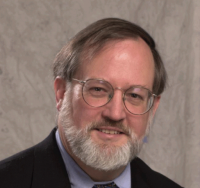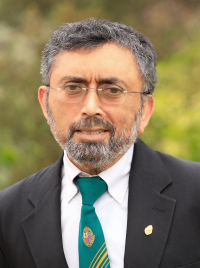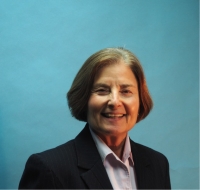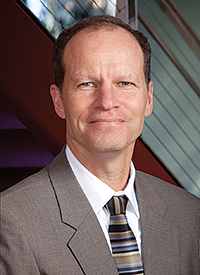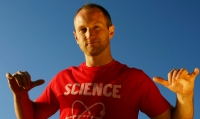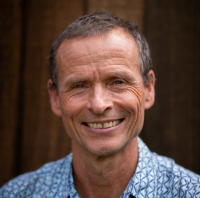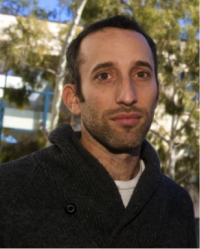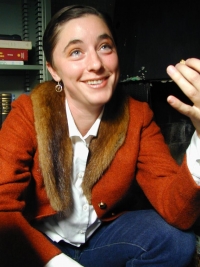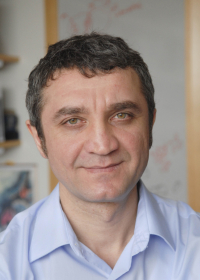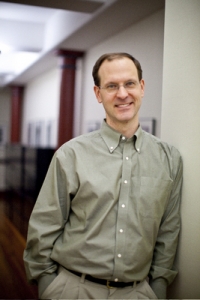Implications of Anthropogeny for Medicine and Health
Biographical Sketches: Co-Chairs
Arizona State University
Randolph M. Nesse is a professor of life sciences and an Arizona Foundation Professor at Arizona State University, where he moved in 2014 to become the founding director of the Center for Evolution, Medicine, & Public Health. He took his undergraduate degree at Carleton College, and his medical training at the University of Michigan. He is a board certified psychiatrist and distinguished fellow of the American Psychiatric Association who treated patients and conducted research at one of the world’s first anxiety disorders clinics that he helped to start in conjunction with his early research on the neuroendocrinology of anxiety. His studies on the origins of senescence led to a deep commitment to evolutionary biology. Nesse collaborated with George Williams on several early works in Darwinian Medicine, including "The Dawn of Darwinian Medicine" in The Quarterly Review of Biology (1991) and the book Why We Get Sick: The New Science of Darwinian Medicine (Vintage, 1995). He is executive editor of The Evolution and Medicine Review, and president of the Foundation for Evolution, Medicine & Public Health. Dr. Nesse's primary current research focus is on how selection shapes mechanisms that regulate defenses such as pain, fever, anxiety and low mood. His work emphasizes the utility of negative emotions, and how a signal detection analysis (the "smoke detector principle") explains why defense expression so often seems excessive. His work shows that low mood is useful to disengage effort from unreachable goals, and that failure to disengage often leads to depression. Closely related is his work on how runaway social selection can shape human capacities for altruism, empathy, and complex sociality that are otherwise difficult to explain, the topic of a recent CARTA symposium. Dr. Nesse’s main mission in his new position at ASU is to establish evolutionary biology as a basic science for medicine, worldwide. He will be recruiting new faculty for the Center, creating new education programs online and at ASU, and helping to coordinate widely dispersed efforts at many universities to apply evolutionary principles to medicine and public health. He is especially eager to make contact with physicians and researchers who share these interests.
UC San Diego School of Medicine
Ajit Varki is a Distinguished Professor of Medicine and Cellular & Molecular Medicine, Emeritus Co-Director of CARTA, Emeritus Co-Director of the Glycobiology Research and Training Center at UC San Diego, and Adjunct Professor at the Salk Institute. He received basic training in physiology, medicine, biology, and biochemistry at the Christian Medical College (CMC), Vellore, The University of Nebraska, and Washington University in St. Louis. He also has formal training and board certification in internal medicine, hematology, and oncology. Varki is the executive editor of Essentials of Glycobiology (Cold Spring Harbor Press, 4th Edition, 2022) and is recipient of a MERIT award from the NIH, and an American Cancer Society Faculty Research Award. Honorific elections include the American Academy of Arts and Sciences, the National Academy of Medicine, the American Society for Clinical Investigation, and the Association of American Physicians. He is also recipient of the three highest honors in his field, the Karl Meyer Award of the Society for Glycobiology, the International Glycoconjugate Organization Award and the Rosalind Kornfeld Award for Lifetime Achievement in Glycobiology. He is recognized for creating the first major open access research journal (J. Clin. Invest., 1996) as well as the first major open access textbook (Essentials of Glycobiology, 2009). He was honored with the Old Cottonian of Eminence Award at the 150th Anniversary of Bishop Cotton Boys School, Bangalore, India, (2015) as well as a Distinguished Faculty Medal and Oration at his medical school alma mater, CMC, Vellore. Significant past appointments include: Co-Head, UC San Diego Division of Hematology-Oncology; President of the Society for Glycobiology; Editor-in-Chief of the Journal of Clinical Investigation; Interim Director of the UC San Diego Cancer Center, President of the American Society for Clinical Investigation, and UC San Diego Associate Dean for Physician-Scientist Training. Varki's research interests are focused on a family of cell surface sugars called sialic acids, and their roles in biology, evolution and disease. Currently, active projects are relevant to the roles of sialic acids in microbial infectivity, the regulation of the immune response, the progression and spread of tumors, aging, and unique aspects of human evolution. His group is particularly intrigued to find multiple interrelated differences in sialic acid biology between humans and our closest evolutionary cousins, the "great apes." These differences are a signature of the events that occurred during the last few million years of human evolution, and appear to be relevant to understanding several aspects of the current human condition, both in health and disease. Varki’s book, Denial (Twelve, Hachette Books, 2013), explores a novel "Mind Over Reality Transition” (MORT) theory that denying reality and personal mortality was a key step in allowing the emergence of a full theory of mind, and in the origin of our species.
Biographical Sketches: Speakers
Case Western Reserve University
Dr. Beall is a physical anthropologist whose research focuses on human adaptation to high-altitude hypoxia, particularly the different patterns of adaptation exhibited by Andean, Tibetan and East African highlanders. Her current research deals with the genetics of adaptive traits and evidence for natural selection, with the role of nitric oxide in oxygen delivery at high altitude and with the human ecology of high-altitude Tibetan nomads.
Professor Beall is a member of the U.S. National Academy of Sciences, American Philosophical Society, and the American Academy of Arts and Sciences.
University of California, San Diego
Dr. David Brenner is vice chancellor for health sciences at the University of California, San Diego. In this role, he leads the School of Medicine, Skaggs School of Pharmacy and Pharmaceutical Sciences at University of California, San Diego, and UC San Diego Health.
A distinguished physician-scientist and leader in the field of gastroenterological research, Dr. Brenner first joined UC San Diego Health in 1985 as a gastroenterology fellow, later joining the School of Medicine faculty, and serving as a physician at Veterans Affairs (VA) San Diego Healthcare System. He also served as a Pew Scholar in the Biomedical Sciences and a Clinical Investigator in the VA system. In 1993, Dr. Brenner became professor and chief of the Division of Digestive Diseases and Nutrition at the University of North Carolina at Chapel Hill, where he continued to earn accolades for his patient care and research.
He was ultimately recruited to UC San Diego Health from Columbia University Medical Center College of Physicians and Surgeons, where from 2003 to 2007 he was Samuel Bard Professor and chair of the Department of Medicine, a member of the Herbert Irving Comprehensive Cancer Center, a member of the Columbia University Institute of Nutrition, and physician-in-chief of New York Presbyterian Hospital/Columbia.
Dr. Brenner’s professional memberships include the American Society for Clinical Investigation; the Association of American Physicians, for which he is currently President-Elect; the American College of Physicians; the American Gastroenterological Association, and the American Clinical and Climatological Association. He is also on the board of directors of two philanthropic foundations, the AlphaOne Foundation and the Alcoholic Beverage Medical Research Foundation. Dr. Brenner has also been published numerous times and serves on several editorial boards.
He earned his medical degree from the Yale University School of Medicine. After completing his residency at Yale-New Haven Medical Center, he served as a research associate in the Genetics and Biochemistry Branch of the National Institute of Diabetes and Digestive and Kidney Diseases (NIDDK) of the National Institutes of Health (NIH).
Community Member
Baba Brinkman is a Canadian rap artist, award-winning playwright, and former tree-planter who has personally planted more than one million trees.
To date Baba has written or co-written six hip-hop plays, which have toured the world and enjoyed successful runs at the Edinburgh Fringe Festival and off-Broadway in New York. His newest play The Rap Guide to Religion recently concluded a six month run at the Soho Playhouse, where it was nominated for a Drama Desk Award in the category “Unique Theatrical Experience”. Baba has also released ten original rap albums on his independent label Lit Fuse Records, including most recently The Rap Guide to Wilderness and The Rap Guide to Medicine.
The Rap Guide to Evolution (“Astonishing and brilliant” NY Times), won a Scotsman Fringe First Award and a Drama Desk Award nomination, and was featured on US national TV on The Rachel Maddow Show and at the Seattle Science Festival opening for Stephen Hawking. In 2014 the show enjoyed a sold-out week at the Sydney Opera House.
Baba is also a pioneer in the genre of “lit-hop” or literary hip-hop, known for his adaptations of The Canterbury Tales, Beowulf, and Gilgamesh. He is a recent recipient of the National Center for Science Education’s “Friend of Darwin Award” for his efforts to improve the public understanding of evolutionary biology.
Baba has spoken at several TEDx conferences, tours and performs regularly, and recently premiered his newest work “Rap Guide to Climate Chaos” at the Edinburgh Fringe to rave reviews.
When he is not on tour, Baba resides in New York city.
UC San Diego
Pascal Gagneux is CARTA's Executive Co-Director, a Professor of Pathology and Anthropology, and the Department Chair of Anthropology at UC San Diego. He is interested in the evolutionary mechanisms responsible for generating and maintaining primate molecular diversity. The Gagneux laboratory studies cell-surface molecules in closely related primates species. His focus is on glycans, the oligosaccharides attached to glycolipids and glycoproteins of the surfaces of every cell and also secreted into the extra-cellular matrix. Gagneux's laboratory is exploring the roles of molecular diversity in protecting populations from pathogens as well as potential consequences for reproductive compatibility. Dr. Gagneux’s interest is in how glycan evolution is shaped by constraints from endogenous biochemistry and exogenous, pathogen-mediated natural selection, but could also have consequences for sexual selection. Dr. Gagneux has studied the behavioral ecology of wild chimpanzees in the Taï Forest, Ivory Coast, population genetics of West African chimpanzees, and differences in sialic acid biology between humans and great apes with special consideration of their differing pathogen regimes. In 2011, while Associate Director of CARTA, Dr. Gagneux helped to establish a graduate specialization in Anthropogeny at UC San Diego. This wholly unique graduate specialization is offered through eight participating graduate programs in the social and natural sciences at UC San Diego.
University of California, Santa Barbara
Michael Gurven (PhD, University of New Mexico) is Professor of Anthropology at the University of California, Santa Barbara. His research links the evolved life history of humans with high levels of intragroup cooperation. He has conducted fieldwork for 18 years with South American indigenous populations, and has published over 140 articles that take an evolutionary perspective on behavior, health, physiology and psychology. Since 2002, Gurven has co-directed the Tsimane’ Health and Life History Project to better understand how aspects of environment and lifestyle affect health and lifespan in subsistence-level societies. His research applies an evolutionary lens to help inform our understanding of today’s complex diseases.
Harvard University
David Haig received his degrees from Macquarie University in Sydney, Australia. He was a Royal Society Endeavour Fellow at Oxford and then a Junior Fellow in the Harvard Society of Fellows. He is now George Putnam Professor of Organismic and Evolutionary Biology and chair of the Australian Studies Committee at Harvard University. His main research interests are maternal-fetal relations, intragenomic conflict, and the evolution of plant life cycles. He still misses kookaburras
Arizona State University
Katie Hinde is an Associate Professor in the School of Human Evolution and Social Change, Center for Evolution and Medicine, at Arizona State University. As Director of the Comparative Lactation Lab, she investigates the adaptively relevant environment of the developing mammalian infant- the mother and her milk- to understand early life metabolic, immunological, and biobehavioral organization. She has established descriptive and explanatory mechanisms of milk synthesis in the rhesus macaque, the primary non-human biomedical model, and demonstrated how maternal life history, infant sex, and cultural ecology influence milk. She earned a B.A. in anthropology from the University of Washington in 1999 and a Ph.D. in Anthropology from UCLA in 2008. From 2009-2011, she trained as a post-doc in neuroscience at the California National Primate Research Center, UC Davis and began her faculty career as an Assistant Professor in Human Evolutionary Biology, Harvard University 2011-2015. In addition to her scholarly publications, Hinde co-edited “Building Babies: Primate Developmental Trajectories in Proximate and Ultimate Perspective” released by Springer in 2013, is an associate editor and writer for SPLASH! Milk Science Update, and serves on the executive council for the International Society for Research in Human Milk and Lactation. She showcases research on mother’s milk, breastfeeding, and lactation for the general public, clinicians, and researchers at her blog “Mammals Suck… Milk!”
Yale School of Medicine
Ruslan Medzhitov obtained his undergraduate degree from Tashkent State University in 1990 and his doctoral degree from Moscow State University in 1993. Medzhitov became an assistant professor in 1999 at Yale University School of Medicine in the section of Immunobiology. He is currently the David W. Wallace Professor of Immunobiology at Yale University School of Medicine and an investigator of the Howard Hughes Medical Institute. His research interests include biology of inflammation, innate immunity, mechanisms of allergic reactions, cell signaling and gene regulation. Medzhitov is a member of the National Academy of Sciences, National Academy of Medicine, and European Molecular Biology Organization, and he is a fellow of the American Academy of Microbiology.
University of California, Los Angeles
Barbara Natterson-Horowitz, M.D., is a Professor of Medicine in the Division of Cardiology at the David Geffen School of Medicine at UCLA. In addition to patient care, she is actively involved with medical education and research. Dr. Natterson-Horowitz also holds a professorship in the UCLA Department of Ecology and Evolutionary Biology and is Co-Director of the Evolutionary Medicine Program at UCLA.
She has also serves as a cardiovascular consultant to the Los Angeles Zoo as a member of its Medical Advisory Board and is Chair of the Zoobiquity Conference, a national educational program that facilitates interdisciplinary discussions between physicians, veterinarians and others in the health professions.
In 2012, Dr. Natterson-Horowitz co-authored the New York Times bestselling book, Zoobiquity: The Astonishing Connection Between Human and Animal Health . Zoobiquitywas named Discover Magazine’s Best Book of 2012, The China Times Best Foreign Translation of 2013, and a Finalist in the American Association for the Advancement of Science Excellence in Science Books 2012. Her work has been featured in the New York Times , The Guardian , Wall Street Journal , Nature , Scientific American , and New Scientist , among others.
Dr. Natterson-Horowitz completed her undergraduate studies at Harvard College and received a Master’s degree from Harvard University. She received her medical degree from the University of California, San Francisco and completed her Internal Medicine and Psychiatry residencies at the University of California, Los Angeles where she served as Chief Resident in both departments. She completed her cardiology fellowship and one year of advanced training in heart failure and cardiac imaging at the UCLA Division of Cardiology.
Duke University
Charles Nunn is Professor of Evolutionary Anthropology and Global Health at Duke University, and Director of the Triangle Center for Evolutionary Medicine (TriCEM). Prof. Nunn uses evolutionary approaches to understand and improve human and animal health. He and his research group investigate the ecology of infectious disease, the evolution of sleep, and the links between ecology, evolution and global health. Prof. Nunn investigates these topics using phylogenetic methods, mathematical modeling, and fieldwork in Madagascar, Kenya and other locations. He is the author of Infectious Diseases of Primates: Behavior, Ecology and Evolution and The Comparative Approach in Evolutionary Anthropology and Biology.
